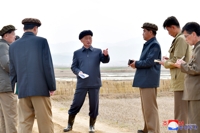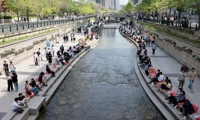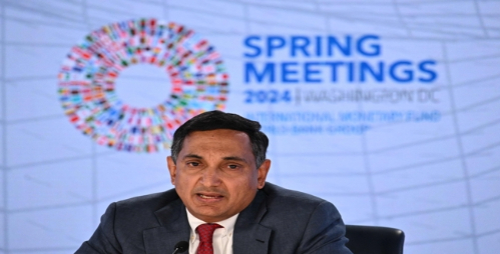Moon puts symbolic ending to N.K. visit with joint mountain trip with Kim
SEOUL, Sept. 20 (Yonhap) -- President Moon Jae-in and North Korean leader Kim Jong-un raised each other's hand atop Mount Paekdu, the Korean Peninsula's highest peak considered the birthplace of the Korean people, in a highly symbolic gesture underlining their commitment to reconciliation and eventual unification.
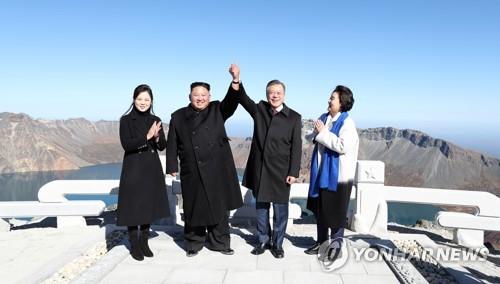
South Korean President Moon Jae-in (2nd from R) and North Korean leader Kim Jong-un raise each other's hand atop the North's Mount Paekdu on Sept. 20, 2018, as their wives, South Korean first lady Kim Jung-sook (R) and her North Korean counterpart Ri Sol-ju applaud. (Yonhap)
The joint visit put a powerful ending to Moon's three-day trip to the North that produced a series of tangible results, including Kim's pledge to take concrete denuclearization steps, such as dismantling the country's ICBM test site, and his pledge to make a reciprocal visit to Seoul.
The two leaders also agreed to take sweeping measures to reduce military tensions and further bolster inter-Korean exchanges and economic cooperation, such as reconnecting cross-border roads and railways, and to work together to win the right to host the Summer Olympics in 2032.
Officials said Kim first proposed the joint visit to Paekdu and Moon accepted the offer.
The North's leader is believed to have made the offer because Moon said during a dinner after his first summit with Kim in April at the border village of Panmunjom that he hopes to trek up the mountain and he believes Kim will make the wish come true.
"I believe there will come a time when ordinary people of the South can make sightseeing trips to Mount Paekdu," Moon said, overlooking the caldera lake at the top of the mountain, named Cheonji in Korean, which means Heaven Lake. "The first step has now been taken, and if this step is repeated, much more people will be coming here."
Kim said Paekdu has been a mountain out of reach for South Koreans since the national division.
"Though a small number of people came here today, (more) people from the South and overseas should come see Mount Paekdu," he said.
The leaders and their wives wore winter coats, given the chilly temperatures at the mountain, located on the border with China in the North's northwest. Officials said the morning low dipped to as low as 2 C.
Kim proposed going down to the lake.
"Would you like to go down to Cheonji?" Kim asked Moon.
"If Cheonji doesn't reject me, I'd like to go dip my hands into the water," Moon said.
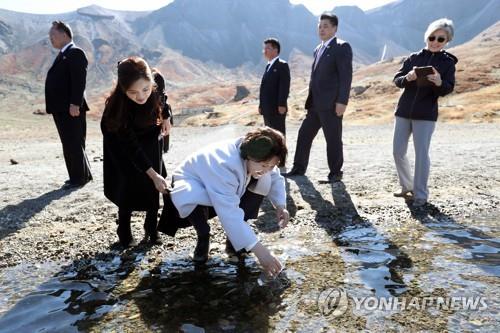
South Korean first lady Kim Jung-sook fills a plastic bottle with water from the Cheonji lake at North Korea's Mount Paekdu on Sept. 20, 2018. (Yonhap)
South Korean first lady Kim Jung-sook took out a plastic water bottle, saying she brought a bottle of water from the southern island of Jeju, and that she will pour half the Jeju water into Cheonji and fill the empty half with Cheonji water in a symbolic sign of unification.
The North's first lady Ri Sol-ju displayed her knowledge of the mountain.
When leader Kim asked aides how deep the lake is, Ri quickly answered that it's 325 meters deep.
"There are a lot of legends involving Mount Paekdu. One says a dragon lived here and went up (to heaven). Another says fairies from the heaven came here to take a bath as the water is so clean. Now that you two came here, another legend has been created," Ri said, referring to Moon and the first lady.
Earlier in the day, Moon left the North's state guesthouse to fly to the Samjiyon airport near the mountain. As Moon's motorcade passes, North Koreans lining the streets cheered, waving paper flowers and the North's national flag and chanting, "unification of the fatherland."
The mountain is revered in both Koreas.
South Korea considers the 2,744-meter peak one of the peninsula's most sacred places as it's known as the birthplace of Dangun, the legendary founder of Gojoseon, the first Korean kingdom, founded more than 4,000 years ago.
North Korea regards the peak as sacred because it's where Kim Il-sung, the country's late founder and grandfather of the current leader, set up a secret military base for anti-Japanese, independence struggles during the 1910-45 colonial rule.
It is also where the North says late leader Kim Jong-il, father of the current leader, was born. That's why Kim's family is called the "Paekdu bloodline." But some historians say the late leader was actually born in Russia.
(END)
-
 Defense chief says N. Korea's hypersonic missile 'unsuccessful' in last-stage glide flight
Defense chief says N. Korea's hypersonic missile 'unsuccessful' in last-stage glide flight -
 Relax, immerse yourself in scents at Venice Biennale's Korean Pavilion
Relax, immerse yourself in scents at Venice Biennale's Korean Pavilion -
 Overdue debut of Korean abstract art pioneer Yoo Young-kuk at Venice Biennale
Overdue debut of Korean abstract art pioneer Yoo Young-kuk at Venice Biennale -
 N. Korea has capability to genetically engineer biological military products: U.S. report
N. Korea has capability to genetically engineer biological military products: U.S. report -
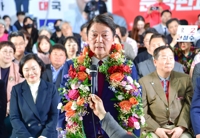 PPP lawmaker says entire Cabinet should resign over general elections defeat
PPP lawmaker says entire Cabinet should resign over general elections defeat
-
 Relax, immerse yourself in scents at Venice Biennale's Korean Pavilion
Relax, immerse yourself in scents at Venice Biennale's Korean Pavilion -
 Overdue debut of Korean abstract art pioneer Yoo Young-kuk at Venice Biennale
Overdue debut of Korean abstract art pioneer Yoo Young-kuk at Venice Biennale -
 Defense chief says N. Korea's hypersonic missile 'unsuccessful' in last-stage glide flight
Defense chief says N. Korea's hypersonic missile 'unsuccessful' in last-stage glide flight -
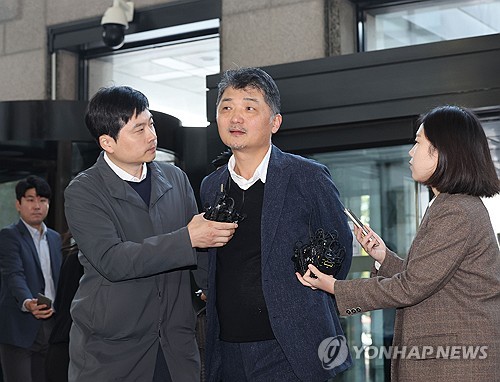 Questioning necessary for Kakao founder for suspected stock rigging: prosecution
Questioning necessary for Kakao founder for suspected stock rigging: prosecution -
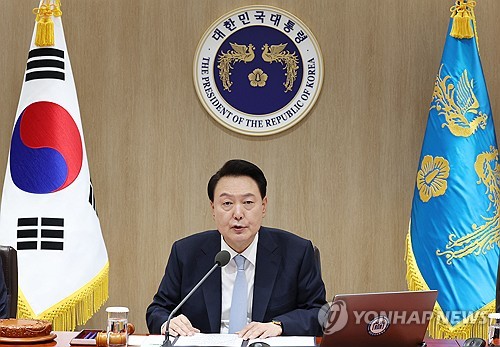 (LEAD) Yoon vows to improve communication with people after election defeat
(LEAD) Yoon vows to improve communication with people after election defeat
-
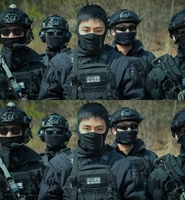 Facebook page unveils photos of BTS member V in counter-terrorism unit gear
Facebook page unveils photos of BTS member V in counter-terrorism unit gear -
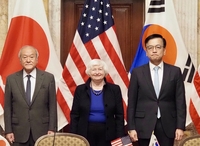 (4th LD) Finance chiefs of S. Korea, U.S., Japan recognize 'serious' concerns over 'sharp' won, yen depreciation
(4th LD) Finance chiefs of S. Korea, U.S., Japan recognize 'serious' concerns over 'sharp' won, yen depreciation -
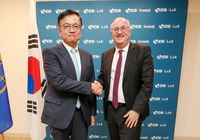 S. Korea to provide US$200 million in humanitarian aid to Ukraine this year
S. Korea to provide US$200 million in humanitarian aid to Ukraine this year -
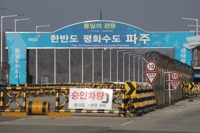 (2nd LD) N. Korea removes street lamps along inter-Korean roads
(2nd LD) N. Korea removes street lamps along inter-Korean roads -
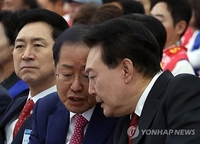 Yoon, Daegu mayor met to discuss post-election matters: sources
Yoon, Daegu mayor met to discuss post-election matters: sources















